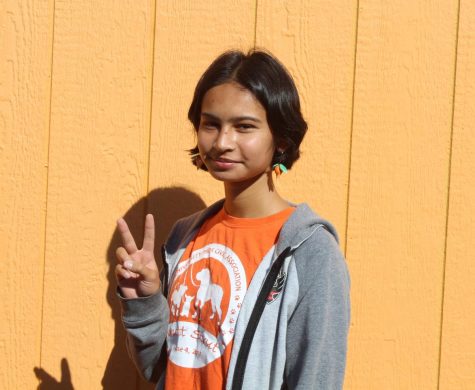LGBTQ+ History Class in Maryland Public Schools
January 13, 2021
Last year, Maryland Public Schools passed legislation to include LGBTQ+ history lessons in public schools. In Montgomery County, a pilot elective course focusing on LGBTQ+ history will be offered at ten public schools this spring. The implementation hopes to create a culture of acceptability within Montgomery County Public Schools, but some say that the course could have negative consequences.
While it is difficult to know how many students face homophobia in public schools, the Centers for Disease and Control (CDC) states that 34% of lesbian, gay, and bisexual (LGB) youth have been bullied on school premisis, and 10% have been threatened or injured on school premisis. The CDC encourages schools to “implement evidence-based policies, procedures, and activities designed to promote a healthy environment for all youth, including LGB students.”
Creating a course focused on the achievements and culture of LGBTQ+ people could help lessen the stigma around queerness, as this could normalize learning about the rich history of LGBTQ+ people and becoming accepting of students that identify as queer. Whether this course will make it’s residing schools more accepting is yet to be determined, but it is likely such results will represent the student body at Montgomery County accurately. The pilot elective course was popular among public schools in Montgomery County; MCPS Chief Academic Officer Maria Navarro, in a 2020 interview with Bethesda Beat, said that it was uncommon for more than one or two schools to be interested in a pilot class. This means that a range of students will participate in the course. If the class receives well from the students, it has a good chance of becoming permanent.
Regardless of the course’s many benefits, some people wonder if creating a course specifically for LGBTQ+ history is the best way to normalize learning about it. Senior Malachi Simpson says, “I feel like LGBT history being implemented into the school system can help normalize children to be more accepting of the people of the community. Despite all this, I don’t think a separate course for LGBT history should be taught at Eleanor Roosevelt or any other school, but it should be integrated into normal history courses.”
Queer history is often underrepresented in mandatory history and social studies classes, despite LGBTQ+ history being an integral part in American history and culture. Having this information taught purely in an elective may imply that learning about and accepting queer people, and especially queer students, is something a person can ‘choose’.
This brings up the question: Would Eleanor Roosevelt benefit from an elective course about LGBTQ+ history? There is no way to know if a teaching a class about queer culture would improve the quality of life for LGBTQ+ students at Roosevelt, as no studies have been done to prove so. However, August Tucker, a Roosevelt sophomore, says that, “I would like queer history to be taught, especially since I’m queer. There’s been a lot of misinformation about our history for so long and I think that teaching it could help that.”
If the pilot elective course is a success in Montgomery County, one could hope that a similar course could be adopted at Roosevelt, and farther, spreading awareness of LGBTQ+ history to everyone.




